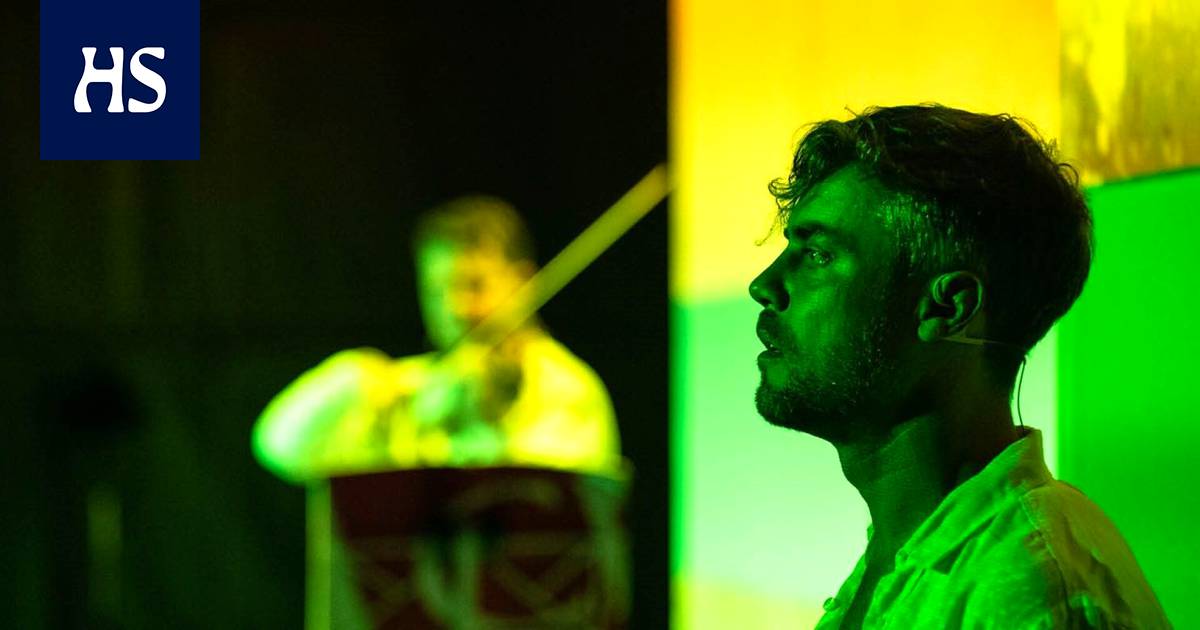Today’s composer Kaija Saariaho’s 70th birthday celebration will continue throughout the fall, especially in Helsinki but also in other parts of Finland.
In October The 70-year-old, one of the most significant contemporary composers in the world Kaija Saariaho the celebration that continues throughout the fall begins in Helsinki in August with two rare works.
On the night of the arts on August 18, Saariaho’s latest choral work will be heard in Temppeliaukio church Reconnaissance. The occasion is also the first performance of the work in Finland.
Between August and September, it is performed three times in the National Opera’s Alminsal Betweenwhich includes the one that was banned for 41 years Study for Life – the new production of the work. Study for Life was Saariaho’s first stage work.
At one time, the poet used in the composition was banned by T. S. Eliot Hollow men because of the text. To Saariaho’s surprise, the publisher at that time absolutely forbade all musical performance uses of the text. Now permission to use the text has finally been obtained.
After these, Saariaho’s opera will have its Finnish premiere at the National Opera on October 21 Innocencewhich received a very enthusiastic reception in the international media last year.
Read more: Thriller, triumph and breakthrough: the biggest surprise of Kaija Saariaho and Sofi Oksanen’s masterpiece is 25-year-old Vilma Jääär
In October, Saariaho’s music will also be performed around Finland.
At the end of December, we will see each other again at Musiikkitalo La Passion de Simone -oratorio, whose performance date has been postponed five times due to the pandemic.
“By chance there has been quite interesting growth in the birthday program for the whole autumn”, says the dramaturg-director Aleksi Barriere by phone.
Coincidentally because La Passion de Simone ways also Between– performances were originally supposed to take place earlier.
Aleksi Barriere
Saariaho’s son Barrière has done so Reconnaissance than Innocence multilingual librettos (of the original libretto To Innocence did Sofi Oksanen). In addition, Barrière’s co-conductor by Clément Mao-Takacs the French musical theater group La Chambre aux échos founded with Betweenperformances, and Barrière directs. Barrière has also directed La Passion de Simoneand both that and Innocence the conductor is Mao-Takacs.
Different works have interesting points of connection with each other. Reconnaissance the act was commenced when Innocence was about to be completed, and according to Barrière, they have largely the same idea: both works, exceptionally for Saariaho, concern the present day and the problems of our time very directly.
Innocence deals with the emergence of violence through school shootings, Reconnaissance on the other hand, through climate change and the desire to colonize Mars, humanity’s lust for power.
“In relation to Kaija’s newer production, these are really important works and also surprising. It’s great to present them almost together or at least in the same context.”
Reconnaissance in connection, almost all of Saariaho’s choral works will be performed. Barrière has also been involved as librettist in three of them. They bring context to the latest works and also a different angle.
“Someone may ask that when Saariaho’s music is performed almost every week throughout the fall, does one not get tired of it? But the repertoire will hopefully show how versatile it is and how many directions Saariaho has taken his music.”
Particularly Barrière sounds enthusiastic Between-performances with three different composers.
First we get a new interpretation of Saariaho Study for Life from the work. Then we hear the composers of the new generation by Sebastian Hill and by Matias Vestergård created separate poetic sound visions, and finally a stage version of Saariaho’s violin concerto Grail Theatrewhich is one of his most famous works.
Sebastian Hilli and Kaija Saariaho are preparing for a joint concert at the Pompidou Center in Paris in June 2022.
“The formal creativity of composers forces the theater director and other actors to approach the stage, dramaturgy and space in a different way and invent new forms. As a librettist, I try to do a bit of the same. Through the text, the librettist forces the composers in new directions, towards new colors.”
As a big idea In Between is that the first three works are all handwritten by people who just started their careers as artists: Saariaho did Study for Life At the age of 28, and two other works were made between the ages of 28 and 30.
“Very hopeful, very radical and almost naively, Kaija made her first musical theater piece at the age of 28. It has three stems, one for the singer, one for the electronics, and one for the lights. There aren’t very many works of this type even nowadays.”
Then its text was not allowed to be used. It was denied surprisingly easily.
“All the other works show the same courage, the desire to find one’s own voice and the desire to propose one’s own colors, one’s own world. Of course, everyone also shows anxiety when you don’t know what’s going to happen next and you feel like things aren’t progressing.”
At the same time, the whole modern society has the same feeling. The old world is dying, but the new is not yet born. What will it be like? Like young artists, we are in an intermediate or closed space, between. So was T. S. Eliot Hollow men -at the time of writing the text after the First World War.
Everything culminates in the stage version From the Graal Théâtrefor the first concert of a slightly more experienced composer, let alone a violin concerto.
“It was a great opening for Kaija, musically, to try to adapt her musical language to the dialogue format, which is essential in the concert format. Thanks to that, he was able to write his first opera a couple of years later. Today it is perhaps even considered a hit concerto, but in the past it wasn’t, at least for the composer.”
From here let’s briefly get to the latest Innocence-opera and its “sister work” For reconnaissance.
“I find it really interesting how Kaija has approached their material. They have quite a lot of everything he could wish for. I think the librettist has to be quite careful and know the composer’s production well: what possibilities are there to take it to new places?”
Reconnaissance in Barrière’s words, the text is built as a labyrinth for Saariaho.
“It turned out to be very melancholic and cosmic music, which the text made possible. There is also a rocket countdown made by singing in a choir, from which no one could guess what kind of music Kaija would compose for it.”
Innocence on the other hand, you get a different interpretation in the National Opera than in the acclaimed world premiere at the Aix-en-Provence Festival, because although the direction remains the same, the conductor is now different.
“Let’s see what happens! The work is Kaija’s most rhythmically challenging opera in all its density. My colleague Clément Mao-Takacs’s interpretation brings new colors to it. He is a fantastic opera conductor.”
From Innocence other productions in other parts of the world are also planned.
“It’s a piece of our time and it’s great how it continues to grow as we learn to present it in new ways.”
Picture from the Between show.
#Music #Kaija #Saariaho #celebrated #work #banned #years









